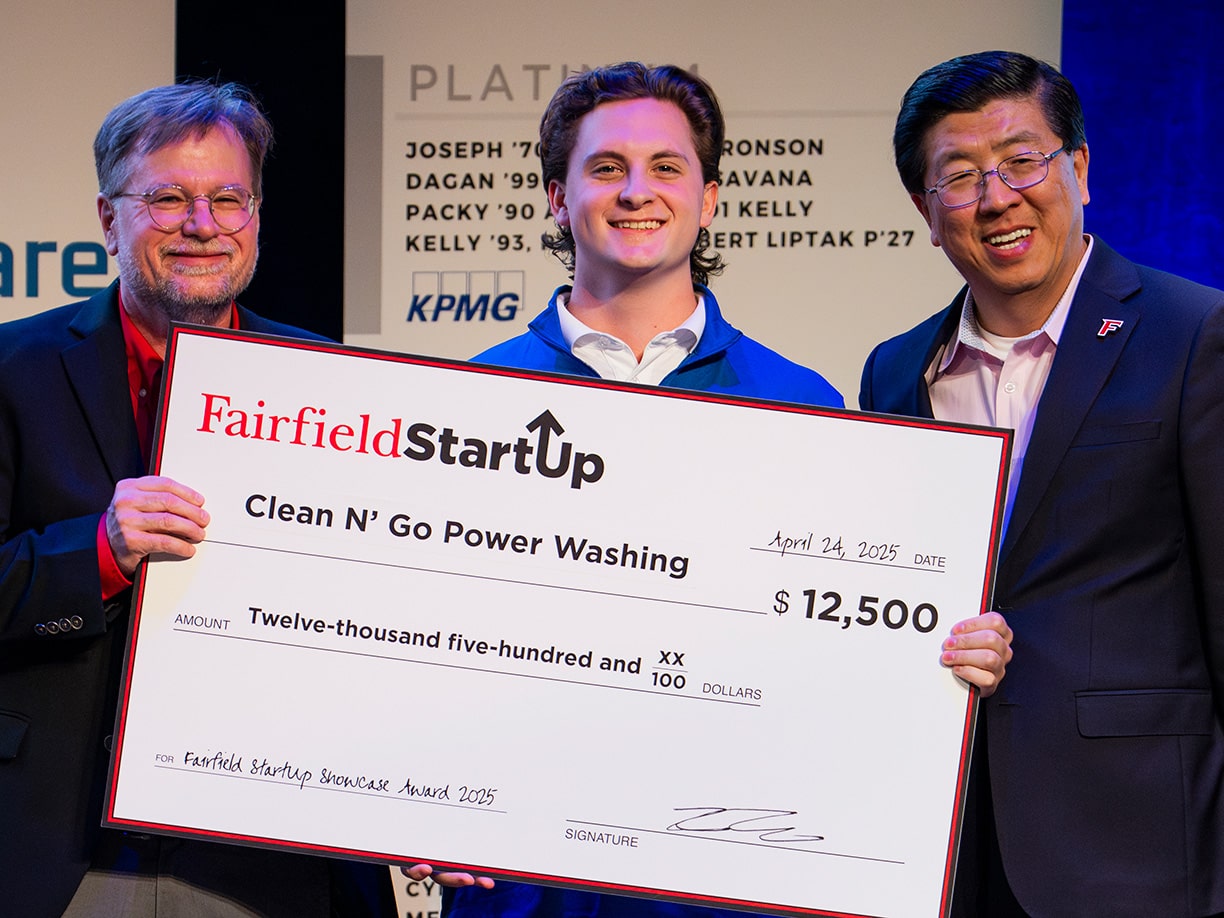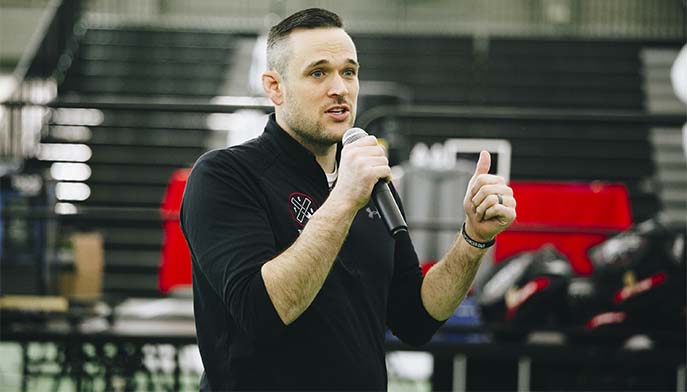FairfieldNews
Fairfield News in Your Inbox
Questions for Us?
Contact our Public Relations Team

Of five student teams, Clean N’ Go Powerwashing came in first and received $12.5K in seed-funding at the 13th Annual Fairfield StartUp Showcase. Team MiniMinds clinched both the Audience Favorite Award and the new Societal Impact Award.
I think my time in the Dolan School of Business helped me get used to being pushed out of my comfort zone, which is the only place where you can find growth.”

Contact our Public Relations Team
